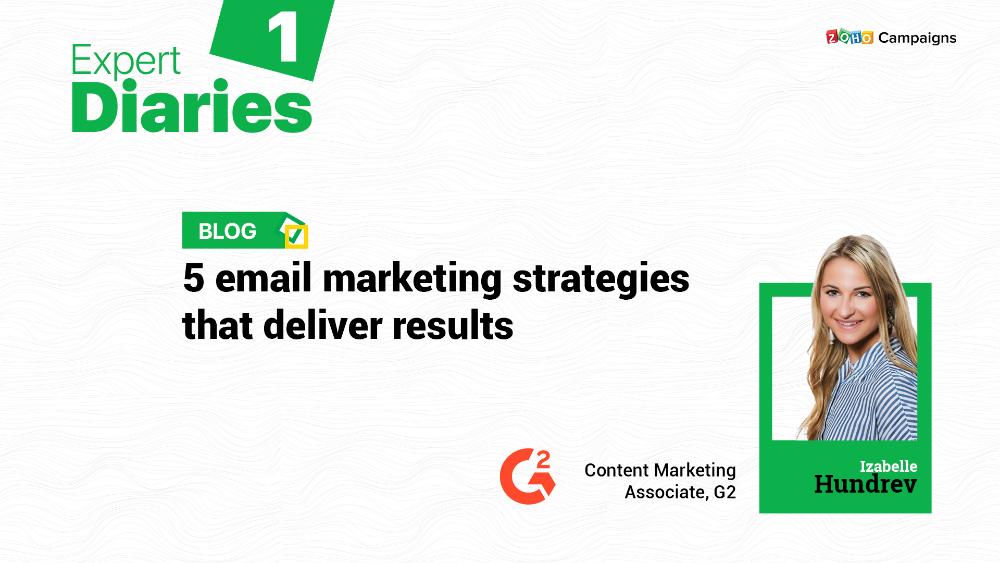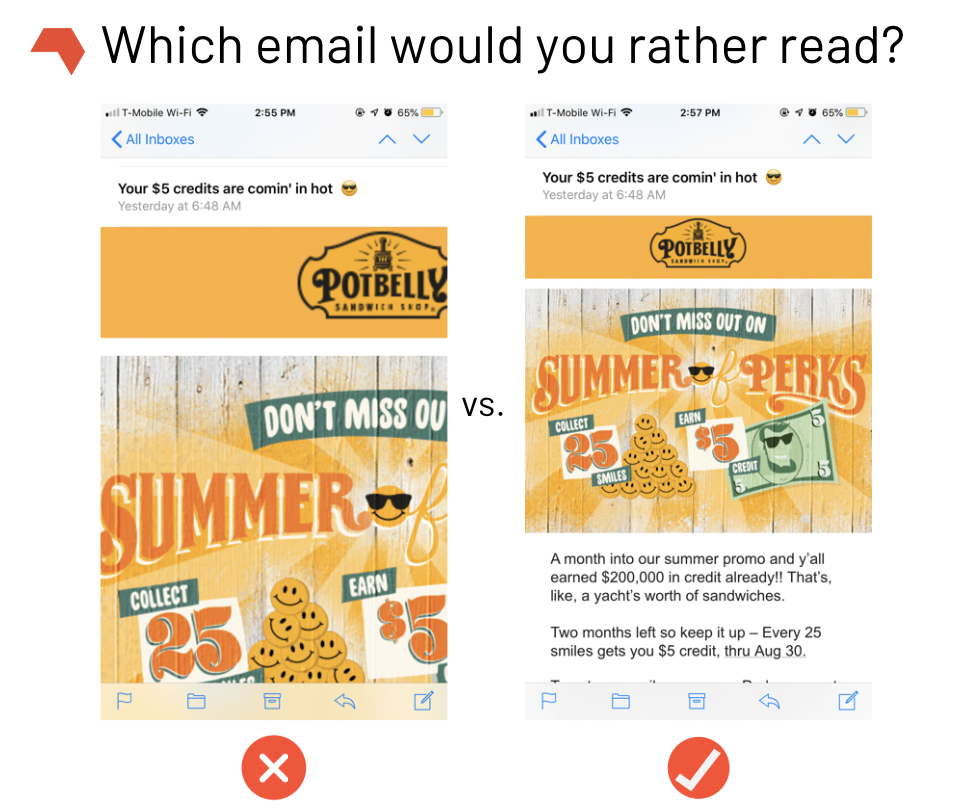
Here’s a blog piece by Izabelle Hundrev from G2, a B2B review marketplace for software and services. She specializes in sales, marketing, and real estate content. After earning a degree in Journalism from the University of Missouri, Izabelle moved back to her hometown of Chicago, where she currently resides.
Expert Diaries from Zoho Campaigns connects avid email marketers to the experts in this space, and help them learn some best practices and tips. We’re kickstarting this with some thoughts on how to liven up the your efforts over the next half of this year, helping you perform #SmartEmailMarketing.
Email has proven to be an effective marketing tool for decades. It helps brands drive traffic, nurture leads, and, ultimately, drive sales.
But now more than ever, buyers in the digital age are flooded with messaging across all applicable channels. Marketers face a new challenge: how to cut through the noise.
As we’re rounding up the first half of this year, there’s no time left to waste. Over the next six months, it’s important to look at email marketing through a different lens and focus your efforts on strategies that are proven to deliver measurable results.
An effective email marketing campaign can take many forms (newsletter, nurture campaign, etc.) but should have a strong tactical foundation. In this article, we’ll cover five email marketing strategies to implement that will help you push the envelope and convert more buyers into paying customers.

Audience segmentation
Email allows you to cast a wide net and connect with your audience in an easy and accessible way. But that doesn’t mean you should target all of your subscribers with the same messaging. Think about it: different people value and care about different things. Someone who just started their own small business has different problems than an executive at a Fortune 500 company. While both of these personas might fit within your target audience, you need to speak to them differently.
This is where audience segmentation comes in. By segmenting your audience into different email lists, you can still reach a lot of people at once, but the messaging will be more relevant to them. How you decide to segment your audience will ultimately be up to you. You can build out email lists based on demographics, level of engagement, or even what stage of the funnel your prospects are in.
Personalization
The reason audience segmentation is so effective is because it makes an email campaign more personalized. Everybody wants to feel special, and if a brand is able to make you feel like you’re not just another email on their list, you form a stronger connection to that company and their message.
There are a lot of ways in which marketers can make their email marketing campaigns more personalized. Small touches like switching up the subject line to include the recipient’s name or including a name in the “from” field can make a big difference. Show your subscribers that you value them as individuals and not just for their wallets.
Send-time optimization
Unless your business only serves a local market, there’s a good chance that your audience doesn’t live in the same time zone. After all, what’s the point of sending a carefully-crafted email if your recipient is asleep when they receive it?
If you check existing research about the best time to send an email, you’ll notice that the results are varied. The truth is there isn’t a universally accepted time that will ensure your email is opened and read. The workaround is that you can test which times work best for your specific audience.
First, start with timezones to make sure you’re hitting your target audience during daytime hours. From there, it’s best to conduct A/B testing to determine which times of the day and days of the week will yield the highest open rates.
Optimize email content for mobile
The days of having access to email only on a desktop are long gone. Nowadays, most people use their smartphone to keep tabs on just about every aspect of their daily life. If the content of the emails that you’re sending isn’t easily readable on a mobile device, you might have a major problem in your hands. To be frank, it’s just bad email marketing.
Luckily, this is easily preventable. When looking at an email inbox on a smartphone, you’ll notice that each message has three major components: the name of the sender, a subject line, and pre-text. There’s a good chance these elements are the only thing the recipient will see before they decide to click on your email or delete it altogether, so you’ll want to make sure they’re optimized to fit the mobile experience.
Another factor to remember is the size and formatting of your email once it’s opened. If the reader is enticed enough to open your message, you don’t want them to delete it because it’s too difficult to read on their phone.
Use technology to your advantage
The final piece of the puzzle is finding the right technology to help you execute. If you pair these email marketing strategies with the correct software tools, you’ll be on your way to converting email subscribers to loyal customers in no time.
Email marketing software plays a big role in running a successful email campaign. Users can create email lists, make custom templates, and send emails in bulk with the click of a button. In addition to helping you be more efficient, an email marketing solution will provide you with valuable data to track your campaigns and their performance in real time. You can track bounce and click-through rates, as well as the number of users that unsubscribed from your campaign. These insights are valuable when it comes to deciding which campaigns to keep and which ones to get rid of.
Final thoughts
There’s no silver bullet when it comes to email marketing, but you can do your best to find out what works for your brand and audience. By following these five email marketing strategies, you’ll be able to fully maximize your efforts in no time.
